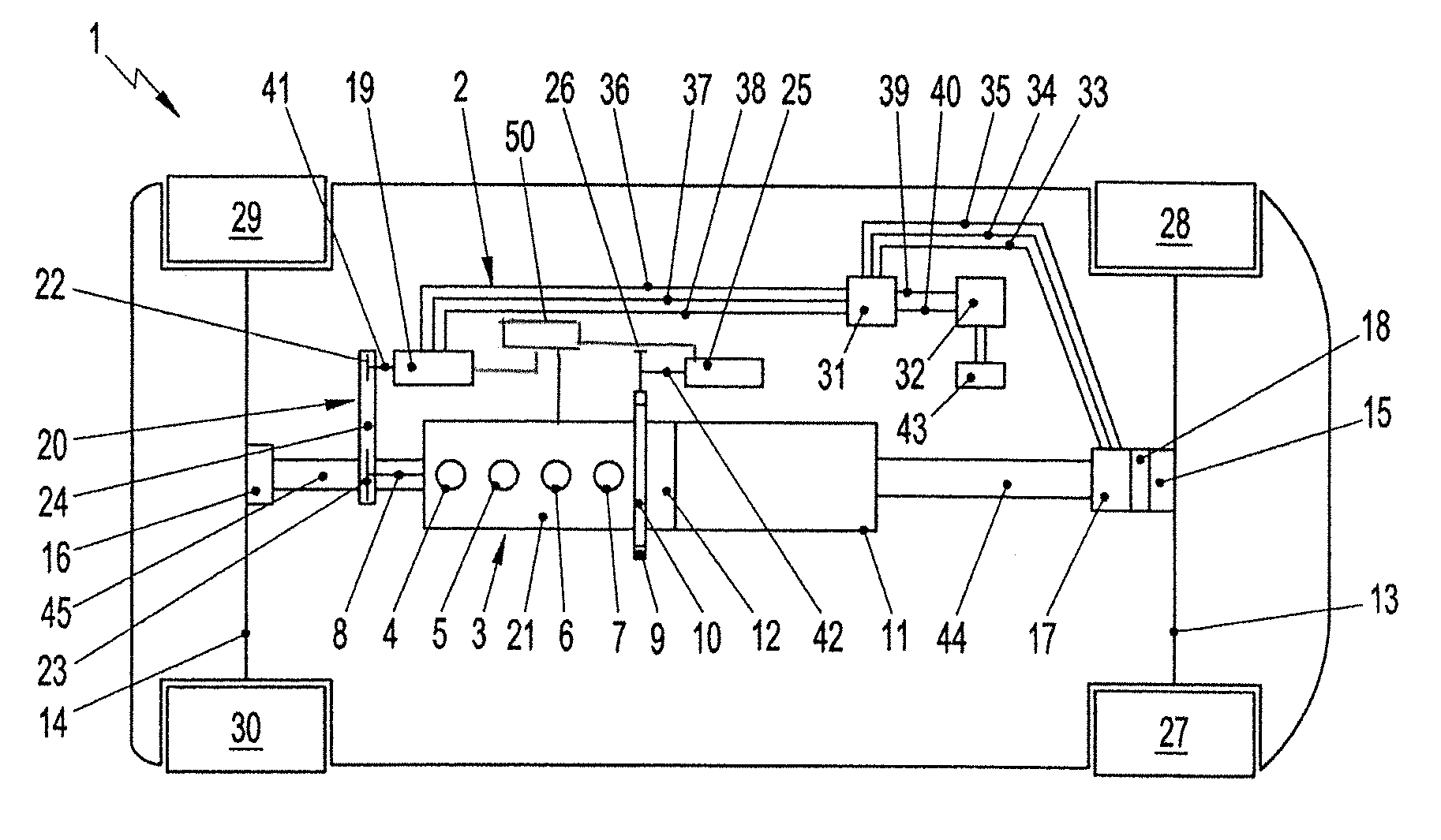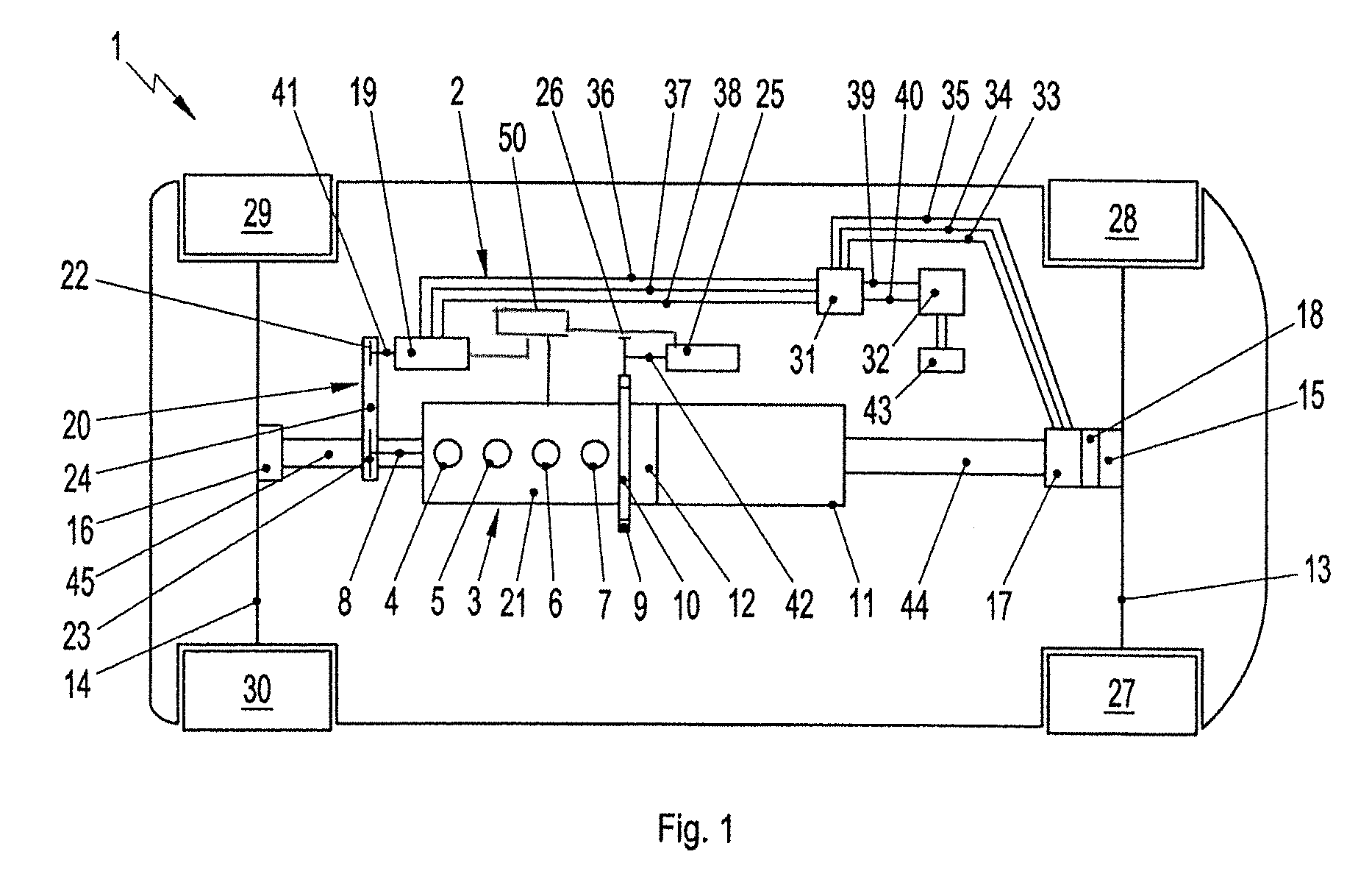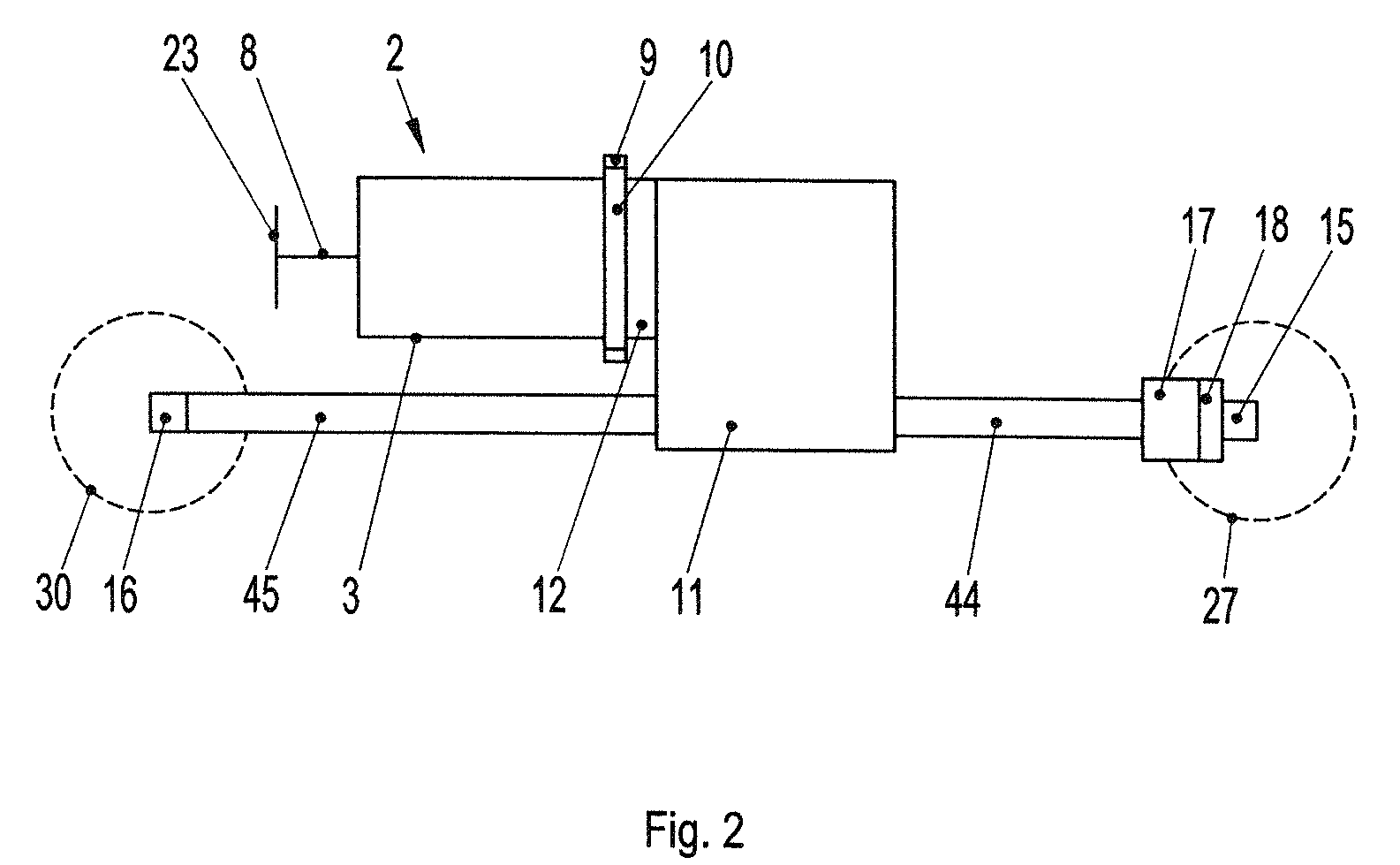Drive system for a motor vehicle and motor vehicle having such a drive system
a technology for driving systems and motor vehicles, which is applied in the direction of engines, machines/engines, engine starters, etc., can solve the problems of increasing friction losses, increasing fuel consumption and emissions of pollutants, and unable to decouple the internal combustion engine. , to achieve the effect of avoiding friction losses and reducing space requirements
- Summary
- Abstract
- Description
- Claims
- Application Information
AI Technical Summary
Benefits of technology
Problems solved by technology
Method used
Image
Examples
Embodiment Construction
[0024]In the figures of the drawing, the same reference symbols denote identical or functionally identical components, unless otherwise stated.
[0025]FIGS. 1 to 2 illustrate a motor vehicle 1 with a preferred embodiment of a drive system 2. The drive system 2 preferably has an internal combustion engine 3. The internal combustion engine 3 has, for example four cylinders 4-7. Four cylinders is optional and the internal combustion engine 3 can have more or fewer cylinders. The internal combustion engine 3 also has a crankshaft 8 and a starter ring gear 9, which is provided, for example, on a flywheel 10 of the internal combustion engine 3. The flywheel 10 preferably is mounted fixedly on the crankshaft 8. The internal combustion engine 3 has a housing, which is essentially in the shape of a right parallelepiped, and the crankshaft 8 passes through, for example, the entire length of the housing 21. The flywheel 10 is arranged, for example, on a narrow side of the housing 21.
[0026]The dr...
PUM
 Login to View More
Login to View More Abstract
Description
Claims
Application Information
 Login to View More
Login to View More - R&D
- Intellectual Property
- Life Sciences
- Materials
- Tech Scout
- Unparalleled Data Quality
- Higher Quality Content
- 60% Fewer Hallucinations
Browse by: Latest US Patents, China's latest patents, Technical Efficacy Thesaurus, Application Domain, Technology Topic, Popular Technical Reports.
© 2025 PatSnap. All rights reserved.Legal|Privacy policy|Modern Slavery Act Transparency Statement|Sitemap|About US| Contact US: help@patsnap.com



